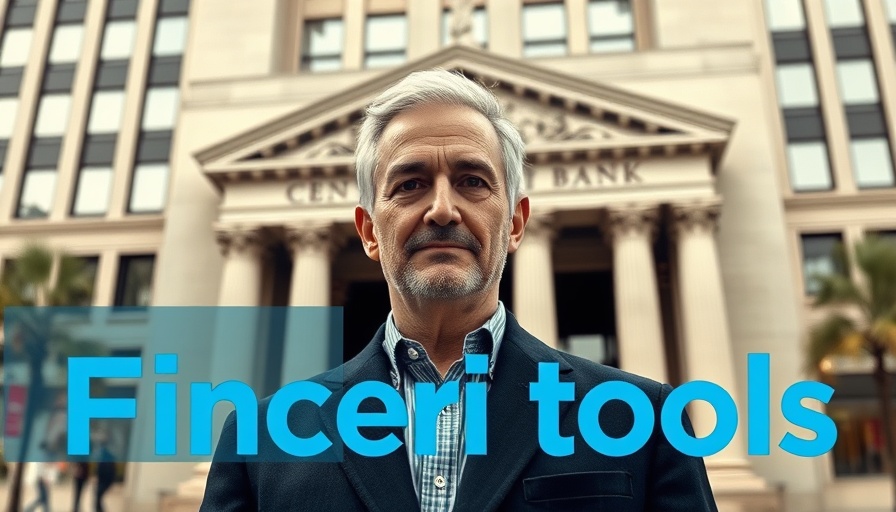
The Rise of Non-Interest Financial Instruments in Nigeria
The Central Bank of Nigeria (CBN) has recently taken a significant step towards fostering a more inclusive financial ecosystem with the introduction of its new liquidity management instruments tailored specifically for non-interest financial institutions. These instruments, announced in a circular issued by the CBN, aim to enhance market efficiency and expand liquidity options while ensuring compliance with ethical finance principles. With the introduction of three key instruments—the Nigeria Non-Interest Financial Institutions Master Repurchase Agreement, the Central Bank of Nigeria Non-Interest Asset-Backed Securities, and the SEIA Non-Interest Note—Nigeria is setting the stage for a potential boom in ethical finance.
In 'CBN Unveils New Liquidity Tools for Non-Interest Financial Market', the discussion dives into the implications of these innovative financial instruments for ethical finance in Nigeria, prompting a deeper analysis.
Understanding the New Instruments and Their Implications
The newly introduced liquidity tools underscore the CBN's commitment to addressing the unique challenges faced by non-interest banks in Nigeria. Currently, six licensed non-interest banks operate in Nigeria, struggling against a backdrop of excess liquidity and inflationary pressures on the broader economy. This initiative indicates an acknowledgment that the financial landscape must cater not just to conventional banking needs but also to those of non-interest financing options, a segment that has often been overlooked.
A Historical Context: The Development of Non-Interest Banking in Nigeria
The journey towards a robust non-interest banking system in Nigeria began with a circular from the CBN in 2012 that laid the groundwork for introducing various non-interest financial instruments. The bank reiterated its commitment to expanding this sector in subsequent years, with significant revisions made in 2017 and recently in 2022. However, even with these advancements, understanding and familiarity with non-interest banking and its instruments among the general populace remains low. This disconnect illustrates the need for greater public education regarding ethical investment opportunities.
Enhanced Opportunities for Ethical Investment
The introduction of these new instruments represents a breakthrough for ethical finance in Nigeria. Nabila Muhammad, a research analyst at Chapel Hill Denham, illuminates an exciting facet: the potential for these products to appeal to investors interested in Sharia-compliant and ethical investments. While many Nigerians may still lack awareness of the non-interest banking space, the recent surge in investor interest—highlighted by the subscription phases of new sukuk bonds—demonstrates an undercurrent of demand for vehicles that align with ethical and moral frameworks.
Addressing Market Gaps and Boosting Financial Inclusivity
Though Nigeria has made significant strides in establishing a non-interest banking infrastructure, there is an evident market gap when compared to its conventional counterparts. There exists a substantial amount of work that still needs to be done to promote awareness and access to these instruments. The financial ecosystem must educate and inform the public and potential investors about available options that align with their values. Hence, fostering a dialogue among stakeholders about ethical finance and building a sustainable market should be a priority for both the banks and regulatory bodies.
The Future Landscape of Nigeria’s Financial Sector
The implications of these instruments could significantly reshape Nigeria’s economic landscape. Just as countries with established dual banking systems—those utilizing both conventional and Islamic frameworks—have managed to successfully integrate ethical finance into their economies, Nigeria stands poised to do the same. A concerted effort towards enhancing ethical finance could help deepen monetary policy transmission and stabilize the overall economic climate. Investment vehicles that are compliant with ethical guidelines could meet consumer demand and spur innovation in the financial industry.
A Call for Engagement in Ethical Finance
As we navigate this transformative phase for non-interest banking, one must consider the obligations of both the CBN and financial institutions to enhance transparency and ensure adherence to ethical finance principles. Potential reforms should include certification for compliance with Sharia law for instruments aimed at faith-based investors. As investor populations become increasingly sophisticated in search of ethical investment opportunities, the market must evolve to accommodate their needs and preferences.
In conclusion, with the launch of innovative liquidity tools targeted at non-interest financial institutions, Nigeria is at a crucial juncture for expanding its financial market and engaging with ethical investments. Stakeholders must come together to promote understanding and awareness, potentially leading Nigeria to the forefront of ethical finance in Africa.
 Add Row
Add Row  Add
Add 


 Add Row
Add Row  Add
Add 

Write A Comment